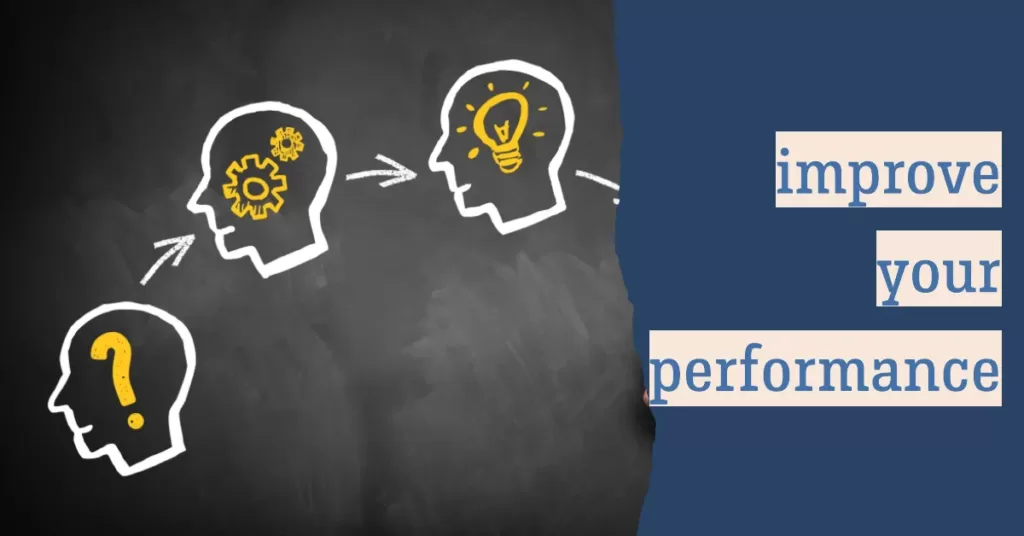If you’re looking to improve your performance in any area of life, mindset coaching may be just what you need. It’s not about changing who you are or becoming someone else entirely. Instead, it’s about identifying the beliefs and thought patterns that may be holding you back from reaching your full potential.
With mindset coaching, you’ll learn how to set goals and create action plans that align with your values and vision for the future. You’ll also develop self-awareness and mindfulness skills that will help you stay focused on what matters most. And when obstacles arise (as they inevitably will), mindset coaching can help you build resilience so that you can continue moving forward toward your goals. So whether you’re an athlete looking to improve your performance on the field, a business owner wanting to take your company to the next level, or anyone else seeking personal growth and development, mindset coaching can help you achieve the freedom and success you desire.
Table of Contents
Key Takeaways
- Mindset coaching involves identifying limiting beliefs and thought patterns that hinder progress in various areas of life.
- Techniques for mindset coaching include setting goals and creating action plans that align with values and vision, cultivating positive habits through consistency, and developing emotional intelligence and open-mindedness for better relationships with others.
- Building resilience is crucial for overcoming obstacles and challenges, and it takes practice to adapt to change and find creative solutions.
- Finding accountability and support through accountability partners, supportive friends, and meaningful connections with others who share similar values and aspirations can lead to new opportunities and improved performance.
Understanding the Basics of Mindset Coaching
Unlocking the potential of your mind is crucial to achieving success in any area of life. Mindset coaching provides you with the tools to tap into this potential and optimize your performance. By understanding the basics of mindset coaching, you can unleash a new level of power within yourself.
One key component of mindset coaching is recognizing the difference between a growth mindset and a fixed mindset. A growth mindset is characterized by an eagerness to learn and a belief that one’s abilities can be developed through hard work and dedication. On the other hand, a fixed mindset assumes that one’s qualities are static and unchangeable. Through mindset coaching, you can shift from a fixed to a growth mindset, enabling you to approach challenges with more confidence and resilience.
Another important aspect of mindset coaching is developing self-awareness. This means identifying your thoughts, emotions, and behaviors in order to understand how they impact your performance. With greater self-awareness comes the ability to manage negative thoughts or beliefs that may be holding you back from reaching your full potential.
Mindset coaching emphasizes taking action toward achieving goals rather than simply waiting for success to come to you. This involves setting clear objectives, breaking them down into manageable steps, and creating an action plan that will move you closer to accomplishing them.
In summary, understanding the basics of mindset coaching enables you to unlock your true potential by adopting a growth-oriented perspective on learning and development, increasing self-awareness around limiting beliefs or behaviors that may impede performance, and taking focused action toward achieving specific goals. Embracing these principles will empower you not only in your professional life but also in all areas where you seek freedom from limitations holding back progress toward desired outcomes.
Identifying Limiting Beliefs and Negative Thought Patterns
You may not realize it, but your negative thought patterns and limiting beliefs are holding you back from reaching your full potential. These beliefs can be deeply ingrained in your mind and can stem from past experiences or even societal conditioning. However, identifying them is the first step toward breaking free from their hold.
To help you identify these limiting beliefs and negative thought patterns, here are some tips:
- Pay attention to your self-talk: Notice how you talk to yourself on a daily basis. Are you constantly criticizing yourself or thinking negatively about situations? Write down these thoughts as they occur to gain awareness of them.
- Look for patterns: Once you have a list of negative thoughts, look for recurring themes. Do they all center around a particular area of your life such as work or relationships? Identifying patterns can help pinpoint the root cause of these beliefs.
- Challenge them: Once you’ve identified your limiting beliefs, challenge them with evidence that contradicts them. For example, if you believe that you’re not good enough to pursue a certain career path, write down all the skills and experience that make you qualified for it.
By identifying and challenging these limiting beliefs and negative thought patterns, you’ll be able to shift your mindset toward a more positive outlook. You’ll start seeing obstacles as opportunities for growth rather than roadblocks to success. Remember that changing your mindset takes time and effort but the rewards are worth it – greater confidence, increased motivation, and improved performance in all areas of your life. So take the first step today toward achieving the freedom to live up to your full potential!
Setting Goals and Creating Action Plans
Get ready to rock your goals by creating a killer action plan with clear steps and deadlines. The acronym SMART is an excellent tool to ensure that your objectives are Specific, Measurable, Achievable, Relevant, and Time-bound. This method will help you stay focused on what you want to achieve while avoiding distractions.
To create a compelling action plan, start by defining your long-term goal. Then break it down into smaller achievable milestones. Be realistic about the timeline for each step; this will help you avoid feeling overwhelmed or discouraged if progress is slow. Make sure each milestone is relevant to your overall objective; it should be something that brings you closer to achieving the big picture.
Get specific about what actions need to be taken to reach each milestone. Write them down in detail and include deadlines for completion. Hold yourself accountable for meeting these deadlines and reward yourself when you do.
To drive home the importance of setting goals and creating an action plan, take a look at this table:
| Without Action Plan | With Action Plan | Result |
|---|---|---|
| Dreaming about success | Setting achievable milestones with clear deadlines | Progress |
| Hoping things will work out | Staying focused on what needs to be done | Success |
| Procrastinating on important tasks | Taking consistent steps toward reaching goals | Accomplishment |
Setting goals and creating an action plan is essential for achieving success in any area of life. Use the SMART method as a guide when crafting your objectives and break them down into manageable steps with clear deadlines. Stay focused on making progress toward each milestone along the way but remember always why you set out in pursuit of these goals in the first place – freedom!
Practicing Self-Awareness and Mindfulness

You’re ready to take your mindset coaching to the next level. It’s time to cultivate positive habits and develop emotional intelligence. By practicing self-awareness and mindfulness, you can unlock your full potential and achieve your goals with greater ease. Let’s dive into how you can make these powerful practices a part of your daily routine.
Cultivating Positive Habits
When cultivating positive habits, it’s important to focus on consistency and small steps forward instead of trying to make drastic changes all at once. Making small changes that you can realistically stick to is much more effective than trying to overhaul your entire routine overnight. Start with one habit and work on mastering it before moving on to the next.
Here are some ideas for positive habits that can lead to improved performance:
- Wake up 30 minutes earlier each day and use that time for meditation or exercise;
- Keep a gratitude journal where you write down three things you’re grateful for each day;
- Take breaks throughout the workday to stretch or go for a short walk;
- Practice mindful breathing when feeling stressed or overwhelmed;
- Make time each week for personal development, whether through reading, listening to podcasts, or attending workshops.
Remember, the key is consistency. By incorporating these small habits into your daily routine, you’ll be well on your way to achieving your goals and improving your overall performance.
Developing Emotional Intelligence
Developing emotional intelligence demands deliberate effort and consistent practice to enhance empathy, expressiveness, and effective communication. It is the ability to recognize, understand and manage your own emotions while being aware of others’ emotions. By developing emotional intelligence, you can improve your relationships with family, friends, colleagues, and even strangers.
To develop emotional intelligence, start by paying attention to your emotions and how they affect you. Recognize when you are feeling anxious or stressed and take steps to calm yourself down. Practice active listening when communicating with others so that you can fully understand their perspective. Finally, be open-minded about other people’s opinions and thoughts instead of immediately jumping to conclusions. By practicing these skills consistently over time, you will begin to see a positive change in both your personal and professional life.
Building Resilience and Overcoming Obstacles
Don’t let obstacles hold you back – instead, focus on building resilience and developing a growth mindset to overcome any challenge that comes your way. Life is full of challenges and setbacks, but it’s how we respond to them that truly matters. By cultivating resilience, you can bounce back stronger than ever before.
Resilience isn’t just about “toughing it out” or ignoring your problems. It’s about adapting to change and finding creative solutions to overcome obstacles. When faced with adversity, take a step back and assess the situation calmly. Look for opportunities to learn and grow from the experience.
One key aspect of building resilience is having a growth mindset. This means embracing challenges as opportunities for growth rather than seeing them as threats or failures. With a growth mindset, you’re able to view setbacks as temporary roadblocks rather than insurmountable barriers.
Remember: resilience takes practice! The more you develop this skill, the better equipped you’ll be to handle whatever life throws your way. So don’t give up when things get tough – use every obstacle as an opportunity to build your strength and resilience. You have the power within you to overcome anything!
Finding Accountability and Support
You can’t go on this journey alone, so find someone to walk alongside you. Like a backpacker on a long hike, having an accountability partner is like sharing the load with someone who’s got your back. Finding accountability and support is crucial for achieving your goals and improving your performance.
Here are three reasons why:
- Accountability partners keep you focused: When you have someone holding you accountable, it’s easier to stay committed to your goals. You’re less likely to give up when things get tough because you know someone else is counting on you.
- Supportive friends help lift you up: Having people in your corner who believe in you makes all the difference. They encourage and motivate you when doubt creeps in, and they celebrate with you when victories happen.
- Collaborating with others can lead to new opportunities: When working toward a common goal with others, doors may open that wouldn’t have otherwise. Networking happens naturally when collaborating with like-minded individuals.
So how do you find an accountability partner or supportive group? Start by looking within your current circle of friends or colleagues for those who share similar goals or interests as yourself. If that doesn’t work, consider joining online communities or groups related to what you want to achieve; many platforms offer virtual meetups where members can connect and support each other.
Remember, finding accountability and support isn’t just about making progress toward individual goals, but also about creating meaningful connections with others who share similar values and aspirations. Don’t be afraid to reach out – there’s power in numbers!




